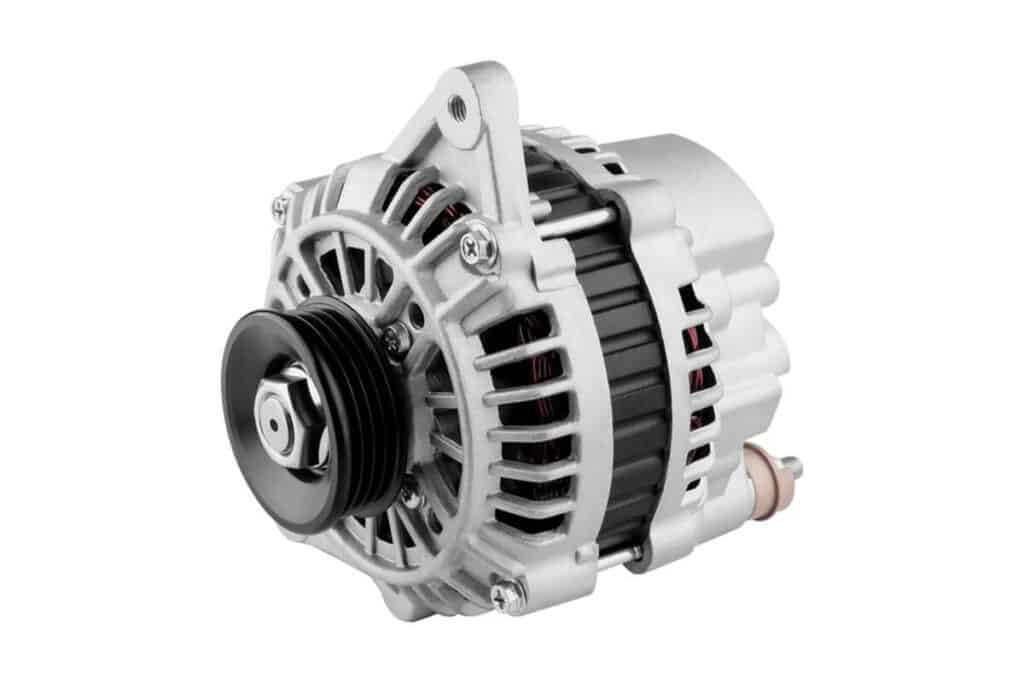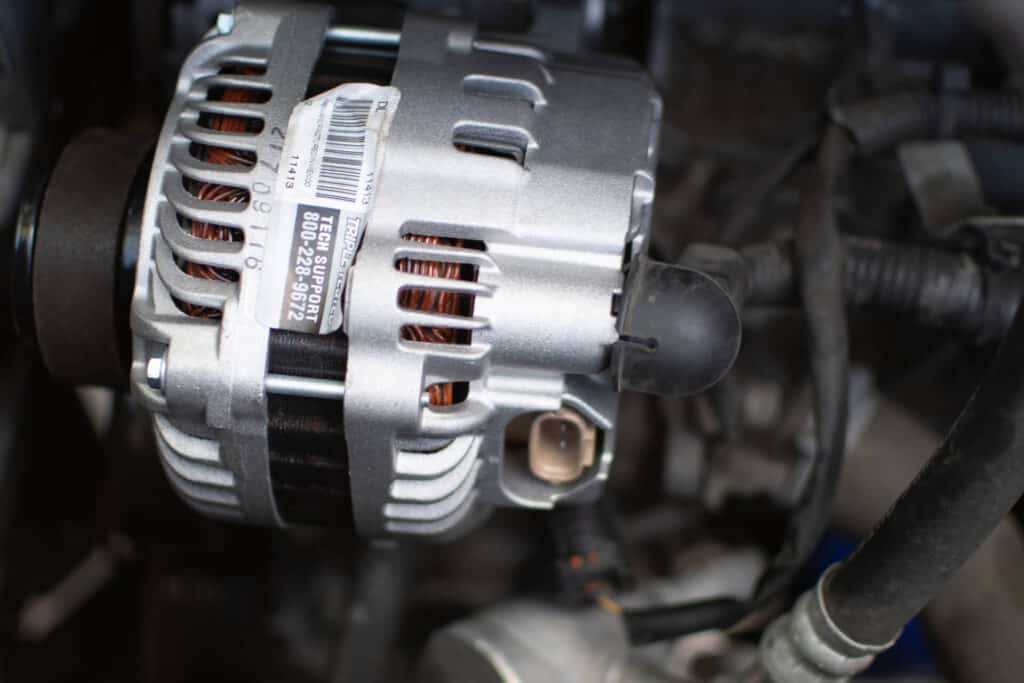Your car’s alternator is an essential component that plays a crucial role in keeping your vehicle running smoothly. To keep your alternator in good condition and maximize its lifespan, it’s important to perform regular maintenance tasks and address any signs of wear and tear.

How to keep your alternator in good condition
To keep your alternator in good condition, there are several maintenance tasks that you should perform on a regular basis. These include:
• Checking the drive belt: A loose or damaged drive belt can cause your alternator to work harder than it needs to, leading to premature wear and tear. Check your drive belt regularly and replace it if it shows signs of wear or damage.
• Cleaning the alternator: Dirt and debris can accumulate on your alternator over time, which can affect its performance. Use a soft-bristled brush to remove any buildup and keep your alternator clean.
• Checking the battery: Your battery plays a crucial role in keeping your alternator running. Check your battery regularly and replace it if it shows signs of wear or damage.
Signs of Wear and Tear for your alternator
Even with regular maintenance, your alternator can still experience wear and tear over time. Some signs of a failing or worn alternator include:
• Dimming or flickering headlights: This can be a sign that your alternator is not providing enough power to your vehicle’s electrical components.
• Warning light on the dashboard: Many vehicles have a warning light that will come on if there is a problem with the alternator. If this light comes on, it’s important to have your vehicle inspected by a qualified mechanic as soon as possible.
• Strange noises: If you hear strange noises coming from your engine, it could be a sign that your alternator is failing.
Proper Care for Your Car’s Electrical System
To prevent alternator damage, it’s important to take proper care of your car’s electrical system. This includes:
• Turning off all electrical components when the engine is off: This can help prevent the battery from draining and reduce the load on your alternator.
• Using high-quality electrical components: Using high-quality parts can help reduce the load on your alternator and prolong its lifespan.
• Reducing excessive appliances in the vehicle: A car’s alternator is designed to output a specific amount of power that can run the necessary components in the vehicle. However, when the number of electrical devices and aftermarket products increases, such as a heavy stereo system or multiple charging devices, the alternator may become overloaded. This will lead to a faster discharge of the battery and put a strain on the alternator, which will eventually reduce its lifespan.

Cleaning and Inspection
In addition to regular maintenance, it’s important to clean and inspect your alternator. This includes:
• Inspecting the wiring: Make sure all wiring is secure and free from damage or wear.
• Checking for leaks: Fluid leaks are common in a vehicle and can be an alternator’s biggest enemy. If you notice a gasket leak around the engine, it’s essential to address the issue immediately to prevent further damage or a complete alternator replacement.
• Belt Tension: Excessive tension on the serpentine belt can induce wear on the alternator and its bearing, whereas loose belts can reduce the alternator’s output and result in overheating that can cause further problems. Checking the right tension in the serpentine belt means the belt doesn’t deviate too much when pressure from a finger is applied and not too loose to see visible slack. A belt tensioner is usually part of every engine that adjusts itself in case of slack or over-tightening. Make sure to have a properly functioning belt tensioner to ensure a prolonged life from your alternator.
• Worn Out bearings: Worn-out bearings can cause the alternator to stop functioning altogether. The magnetic pole responsible for electricity production runs off the bearing. If the bearing fails, the alternator will not work. To ensure the bearing runs smoothly, listen for grinding noises from the alternator, check the belt’s condition, and inspect the bearing for rust. If you notice any of these signs, have the bearing replaced to prolong the life of your alternator.
• Belt Alignment: The alignment of your serpentine belt is essential in ensuring that the alternator functions efficiently. An unaligned belt setup can cause uneven wear on the belt and reduce the alternator’s efficiency. To check the belt alignment, place a straight scale along the pulley’s edge. If the belt touches the scale on one side and not the other, then it’s likely a misalignment issue. This can deteriorate the belt and pulley and eventually the alternator. So, ensure properly aligned belts and pulleys to get the best working results from the alternator and help increase its life.
• Airflow and Clean Engine Bay: The alternator experiences high temperatures due to being in close proximity to the engine and its own workings. Airflow into the engine bay cools the alternator. If there is too much dirt in the bay, the flow of air is restricted, and the dirt finds its way into the alternator, which can reduce its operation. Ensure that the engine bay is clean, and there is proper airflow around the alternator to keep it cool and prolong its life.
• Improper Jump Starting: Improper jump-starting of the vehicle can have an adverse effect on the alternator, directly affecting it and possibly short-circuiting it. If you must jump-start your car, make sure to follow the instructions in your vehicle’s manual and use caution to avoid damaging the alternator.
• Clean Battery Terminals: Corroded battery terminals prevent charging of the battery, and the alternator works harder to charge the battery, which can further increase alternator load and eventually render the alternator overheated and reduce its working efficiency. Clean the battery terminals with baking soda and a wire brush and change the battery cables to remove rust.
Conclusion
In conclusion, your alternator is a vital part of your car’s electrical system, and its proper functioning is crucial for your vehicle’s performance. Regular maintenance, proper care of your car’s electrical system, and inspection of your alternator can go a long way in prolonging its lifespan. By following the tips mentioned above, you can ensure that your alternator lasts as long as possible and keeps your vehicle running smoothly.
